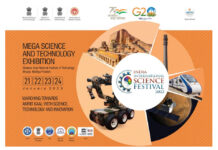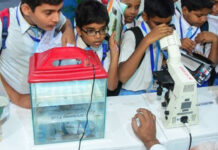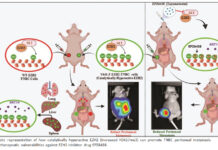New Delhi, Dec 10: Union Minister of State (Independent Charge) Science & Technology; Minister of State (Independent Charge) Earth Sciences; MoS PMO, Personnel, Public Grievances, Pensions, Atomic Energy and Space, Dr Jitendra Singh said that the allocation of funds for research and development for the six major scientific agencies has more than doubled in last 7 years, from Rs. 17,406.10 crore in 2014-15 to Rs. 37,823.69 crore in 2021-22.
In a written reply to a question in the Rajya Sabha, he said the Government has been consistent in increasing the allocation of funds for investment in R&D in the country. The progressive allocation (Budget Estimate) of funds for six Major Scientific Agencies for the last three years is as under:
(INR crore)
| Agencies | 2019-20
| 2020-21 | 2021-22 |
| Department of Science & Technology (DST) | 5580.01 | 6301.53 | 6067.39 |
| Department of Scientific & Industrial Research/ Council of Scientific Research (DSIR/CSIR) | 4895.89 | 5385.00 | 5224.27 |
| Department of Bio-Technology (DBT) | 2580.34 | 2786.76 | 3502.37 |
| Department of Space (DOS) | 12473.26 | 13479.47 | 13949.09 |
| Department of Atomic Energy (R&D Sector) | 6264.14 | 6973.78 | 7183.44 |
| Ministry of Earth Sciences (MoES) | 1901.76 | 2070.00 | 1897.13 |
| Total | 33695.40 | 36996.54 | 37823.69
|
The Minister also informed that the number of patents for innovations granted to Indian scientists has more than doubled in 3 years, from 2,511 in 2018-19 to 5,629 in 2020-21.
On a question that the number of scientists per million people in India is lower as compared to other Asian countries, the Minister said that as per the latest available UNESCO S&T Statistics, the number of research scientists per million people in India is 255, which is lower than in countries such as Korea (7,498), Japan (5,304), Singapore (2,795), Malaysia (2,396) and China (1,225) but higher than in countries like Indonesia (216), Philippines (106), and Sri Lanka (106) in Asia.
The Government, he said, has taken various steps to encourage scientific research activities in the country such as setting up of new institutions for science, education and research, creation of Centres of Excellence and facilities in emerging and frontline areas of S&T in academic and national institutions, operation of schemes such as Fund for Improvement of Science and Technology Infrastructure (FIST); Sophisticated Analytical Instrument Facilities (SAIF), launch of National Mission on Interdisciplinary Cyber-Physical Systems (NM-ICPS),Visiting Advanced Joint Research (VAJRA) Faculty Scheme for distinguished overseas scientists and academicians including Non-Resident Indians (NRIs) and Overseas Citizens of India (OCIs), Overseas Visiting Doctoral Fellowship (OVDF), Prime Minister’s research fellowships, Teacher Associate-ship for Research Excellence (TARE) and Distinguished Investigator Award (DIA), Department of Bio-Technology-The World Academy of Sciences (DBT-TWAS) International fellowships and providing substantial grant to potential scientists through extramural research funding, besides making successive increases in allocations for Research & Development. (India Science Wire)
























